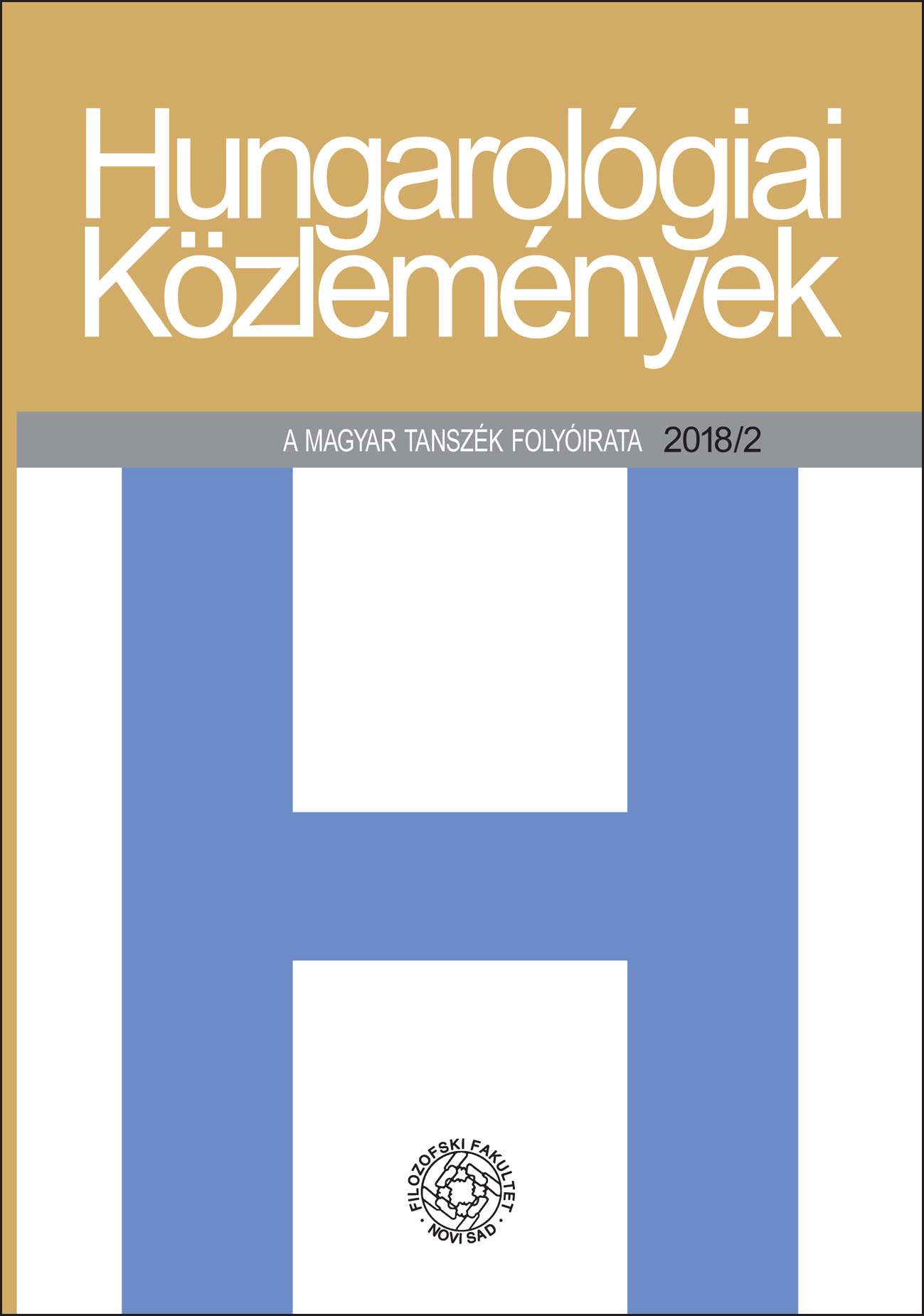A TRAUMÁBÓL SZÜLETŐ SZÓ
Absztrakt
A tanulmány arra tesz kísérletet, hogy a Petri György szerelmi költészetének egyik csúcspontját jelentő Kepes Sárához írt verseit traumaszövegekként elemezze. Ennek során a traumakutatás, elsősorban a narratív pszichológiai tartalomkutatás és az irodalmi interpretáció lehetséges közös pontjait keresi. A trauma, Dominick LaCapra fogalmával, „hiányból” „veszteséggé” formálásának folyamatát kíséri végig a Petri-vers nézőpontszerkezetében, időtapasztalatában, vizualitást, illetve dialogikusságot idéző elemeiben. Külön fejezetet szán a Petrire oly jellemző ironikus látásmód és a traumafeldolgozás összefüggésének. Végül a trauma verbalizálásának, narrativizálásának mikéntjét a bahtyini „intonációs metafora”, a belőle születő „szemantikai metafora” és a metaforából kibomló elbeszélés kérdésén keresztül közelíti meg.
Hivatkozások
Apák és fiúk. Petri Lukács Ádám beszélgetése Petri Györggyel. In Beszélgetések Petri Györggyel, 1994. Budapest: Pesti Szalon.
Bahtyin, Mihail. 1985. A szó az életben és a költészetben. Ford. Könczöl Csaba. Budapest: Európa.
Bahtyin, Mihail. 2002. François Rabelais művészete, a középkor és a reneszánsz népi kultúrája. Ford. Könczöl Csaba. Budapest: Osiris.
Bal, Mieke. 1998. Introduction. 1998. In Acts of Memory: Cultural Recall int he Present, eds. Bal, Mieke–Crewe, Jonathan–Spitzer, Leo. vii-xviii. http://sites.dartmouth.edu/brison/files/2014/09/B.14.-Trauma-Narratives.pdf (2017. dec. 7.)
Brison, Susan J. 1998. Trauma Narratives and the Remaking of the Self. In Acts of Memory: Cultural Recall int he Present, eds. Bal, Mieke–Crewe, Jonathan–Spitzer. 39–54. http://sites.dartmouth.edu/brison/files/2014/09/B.14.-Trauma-Narratives.pdf (2017. dec. 7.)
Buda Béla szerk. 1974. Pszichoterápia. Budapest: Gondolat.
Fenyő D. György. 2004. A „kegyetlen irodalom” tanításáról. In Az örökhétfőtől A napsütötte sávig, szerk. Fenyő D. György. 228–244. Budapest: Korona Nova.
Fenyő D. György szerk. 2004. Az örökhétfőtől A napsütötte sávig. Budapest: Kronika Nova.
Fodor Géza. 1991. Petri György költészete. Budapest: Szépirodalmi.
Freud, Sigmund. 1974. Ismétlés, emlékezés és átdolgozás. Ford. Gábor Ida. In Pszichoterápia, szerk. Buda Béla. 49–56. Budapest: Gondolat.
Horváth Kornélia. 2012. Petri György költői nyelvéről. Budapest: Ráció.
Keresztury Tibor. 2015. Petri György. Budapest: Magvető.
Kovács Árpád. 2013. Az irodalmi esemény. Budapest: Gondolat.
LaCapra, Dominick. 2006. Trauma, hiány, veszteség. Ford. Gyimesi Júlia. Café Bábel (2): 89–97.
László János. 1998. Szerep, forgatókönyv, narratívum. Budapest: Scientia Humana társulás.
Margócsy István. 2004. Petri György és az irónia. In Az örökhétfőtől A napsütötte sávig, szerk. Fenyő D. György. 55–71. Budapest: Korona Nova.
Menyhért Anna. 2008. Elmondani az elmondhatatlant: Trauma és irodalom. Budapest: Ráció.
Michel, Juliet. 1999. Trauma, felismerés és a nyelv helye. Ford. Pándy Gabi és Hárs György Péter. Thalassa (2): 61–81.
Petri György. 1997. Irónia és melankólia. Magyar Lettre Internationale Tavasz, http://epa.oszk.hu/00000/00012/00008/25petri.htm (2017. aug. 23.)
Petri György. 2000. Magyarázatok P. M. számára. Holmi http://www.holmi.org/2000/12/petri-gyorgy-magyarazatok-p-m-szamara (2017. máj. 2.)
Pólya Tibor. 2007. Identitás az elbeszélésben: Szociális identitás és narratív perspektíva. Budapest: Új Mandátum.
Schein Gábor. 2003. A radikális modernség konzervatív változata. Megjegyzések Petri György költészetéről. Irodalomtörténet (3): 420–443.
Sperber, Dan–Wilson, Deirde, On verbal Irony, Lingua 87 (1992), North-Holland, 53–76.
Szigeti Csaba. 1992. De dignitate amoris: Petri György szerelmi költészetéről. Jelenkor (6): 562–571.
Szigeti Csaba. 2002. Antiretorika: Az elmondhatatlan önéletrajz Petri Györgynél. In Az elmondhatatlan önéletrajz, szerk. Kiss Noémi, Kovács Viktor. 29–42. Miskolc: Összehasonlító Irodalomtörténeti és Művészettörténeti Tanszék.








